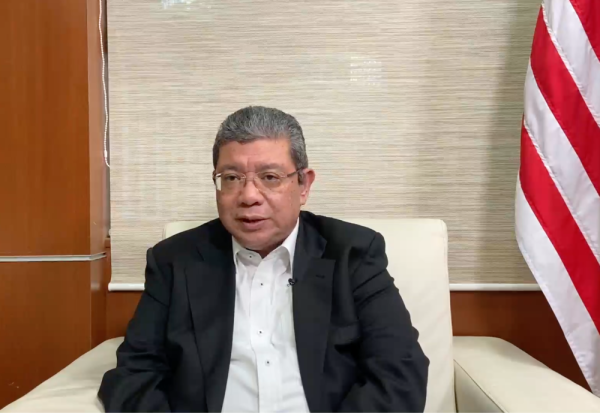Foreign Ministry’s ‘first 100 days’ KPIs achieved, Saifuddin talks about new framework and human rights

KUALA LUMPUR - Malaysia’s New Foreign Policy Framework underlines the importance of maintaining the current momentum of reform and progress whilst also taking into account the impact of the pandemic.
Foreign Minister Datuk Seri Saifuddin Abdullah said the new framework was part of the three key performance indicators (KPIs) assigned to him for the first 100 days of the Malaysian Family Aspiration under Prime Minister Datuk Seri Ismail Yaakob.
The other two KPIs were vaccine diplomacy and Malaysia’s election into the United Nations Human Rights Council, he said, adding that they have successfully achieved all three prior to the Dec 9 deadline.
Saifuddin said the new framework works hand-in-hand with the Foreign Policy Consultative Council.
“What happens now is that we have the pandemic and it has disrupted almost the whole spectrum of our lives, including foreign affairs.
“We have to come up with another policy focused on continuity, the principles and fundamentals remained the same but there are some adjustments,” he said in an exclusive interview with Sinar Daily on Dec 7.
Saifuddin said adjustments made to the new policy emphasized more on the aspects of health diplomacy, digital economy and cultural diplomacy compared to the previous policy which focused on human rights.
For health diplomacy, he said it goes beyond Malaysia receiving and distributing vaccines but also the possibility of producing vaccines.
“We have started discussing with three or four vaccine-producing companies from China regarding our vaccine production,” he said, adding that Malaysia was promised one million doses of additional vaccine from the Chinese government during his official visit on Dec 3 and 4 last week.
Saifuddin also talks about sports as part of cultural diplomacy and how vital it was for Malaysia.
“I have just secured an agreement with China regarding the basketball sport and they promised to send coaches and train our national team in their country.
“We are also looking to secure agreements on different sports with other countries, but this, as I said, is a part of a bigger framework which is cultural diplomacy,” he added.
On the UN Human Rights Council, Malaysia was elected to the council for the 2022-2024 term after it won one of the 18 seats with 183 votes in October this year.
Commenting of the progress of human rights in the country, Saifuddin said it sometimes can be a tricky issue.
“We believe in human rights and want to uphold.
"We are of the opinion that it is the right of everyone to certain values and principles such as freedom of speech, academic freedom, freedom of association and so forth.
“At the same time, we also have to be practical at the way we look at things around the globe.
“For example, some countries talk about democracy but the same country that champions democracy seems to be supportive of authoritarian governments,” he said.
Saifuddin said Malaysia has been criticised for allegedly discriminating against other religions but according to Article 3 of the Federal Constitution, everyone is free to practice their religion here.
“Our Constitution, Article 3 is very harmonious for the practice of religion. Islam is the religion of the Federation but all other religions are free to be practiced by their followers throughout the country,” he added.
Ismail Sabri launched the new framework themed “Focus in Continuity: A Framework for Malaysia’s Foreign Policy in a Post-Pandemic World” on Dec 7.
He was quoted saying the framework recognised key challenges and identifies numerous emerging global trends as well as issues that should be given utmost priority in the immediate term.
Muat turun aplikasi Sinar Harian. Klik di sini!




















